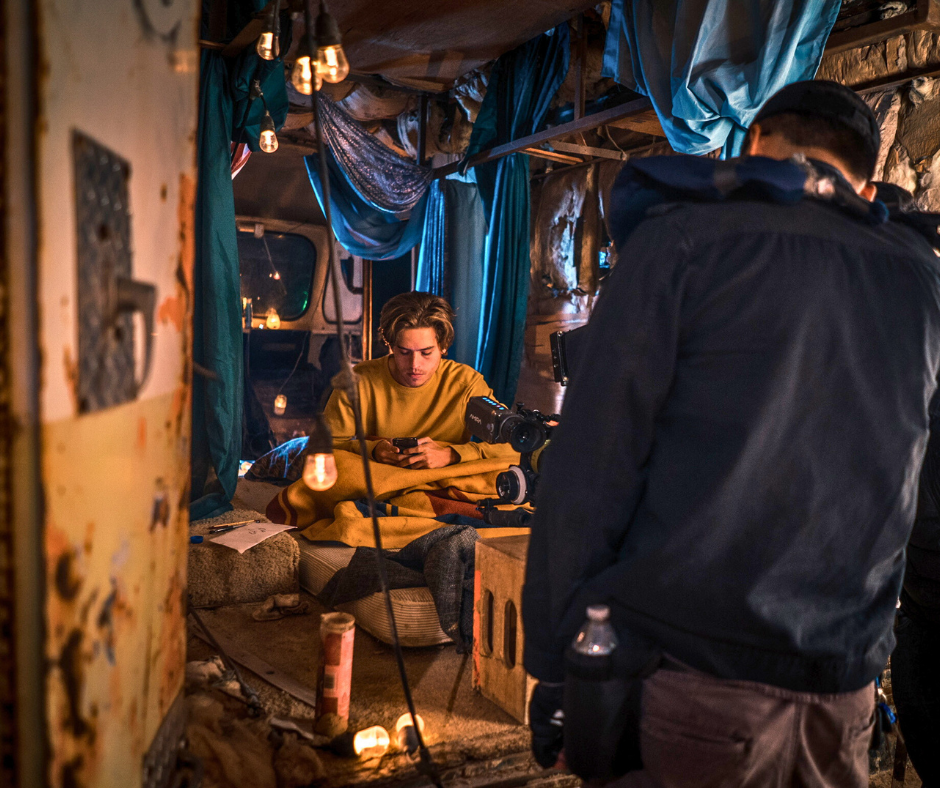Visions of Fire: The Spiritual Anarchy of Tyger Tyger (2021)
- gvaldez801
- Oct 15, 2025
- 3 min read
Updated: Oct 17, 2025
"Tyger Tyger, burning bright..." — William Blake's immortal line ignites the tone of Kerry Mondragon’s 2021 film, a kaleidoscopic fugue that burns through dystopia, addiction, and divine longing. Part fever dream, part punk psalm, Tyger Tyger is less a movie and more a trance-state transmission from a world already falling apart—and already being reborn.
Set against the backdrop of a pandemic-stricken near-future (eerily prescient given its pre-COVID shoot, shot one year before), the film follows Blake (Sam Quartin) and Luke (Dylan Sprouse), a disaffected junkie pulled into a drug heist and spiraling road trip across the ruins of America’s Southwest to find a Free City.
A Film Made Like a Vision
Director Kerry Mondragon has often described Tyger Tyger as a spiritual experience as much as a narrative one. Shot guerrilla-style in Slab City, Salvation Mountain, and the outskirts of the American wasteland, the film channels the raw spirit of outsider communities and prophetic art. It's like Nomadland's punk little sibling.
It’s no accident that the heroine’s name is Blake. Mondragon weaves William Blake’s ecstatic cosmology throughout the film, not through quotation but through sensation: the fractured editing, saturated color palette, and moments of wandering, not following the path. As Blake the poet wrote of his visions: “I must create a system, or be enslaved by another man's.” This film creates its own system entirely.

Themes: Anarchy, Addiction, and Ascension
Tyger Tyger isn’t interested in easy metaphors or moral binaries. Instead, it plunges headlong into:
Liberation through disobedience: Blake steals meds not for profit but to deliver them freely—a radical act of defiance against broken systems.
The search for purity in chaos: Characters drift, scavenge, and speak in half-memories, searching not just for survival but for something sacred.
Mysticism and fragmentation: Like the mind of someone deep in withdrawal—or awakening—the film flickers between lucidity and hallucination, echoing Blake’s own "doors of perception."
The result is a kind of psychedelic pilgrimage, one that confronts both addiction and grace, grief and transcendence.

A New Kind of Dystopia
Most dystopian films present polished nightmares. This one strips all that away. There are no sleek skyscrapers or high-tech fascism. Just dirt, light, dust, and junk. Shot on Russian lenses last used on Tarkofsky's Solaris with a wandering, intuitive camera, Tyger Tyger feels like it’s already decaying—like the end of the world has already happened, and we’re picking through its ashes looking for truth.
In that way, it’s less about destruction and more about renewal.

Why It Matters Now
In the wake of global collapse, spiritual crisis, and ecological dread, Tyger Tyger offers no answers. Instead, it offers a question: What survives when everything else falls away?
Love? Vision? Poetry? Addiction?
It’s a film that dares to see beauty in waste and sacredness in madness. The tyger, Blake might say, is not just burning bright—it’s burning inside us all, while the world's on fire.
For the Seekers, Not the Spectators
If you’re looking for clean plotlines and closure, this isn’t your film. But if you’re a seeker—if you’ve ever stared at the stars while tripping in the desert, or tried to write a poem with a broken pen and a full heart—then Tyger Tyger (2021) might feel like coming home.





Comments